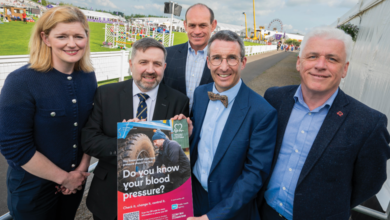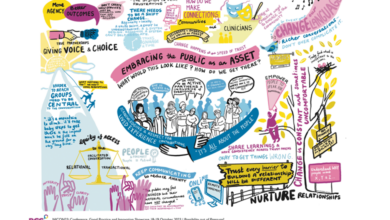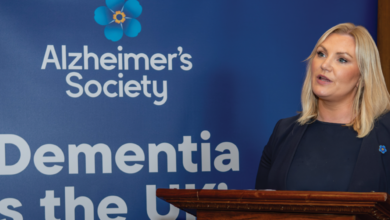A truly inclusive healthcare environment

Following scenes of racist violence in August 2024 in parts of Northern Ireland, which left some 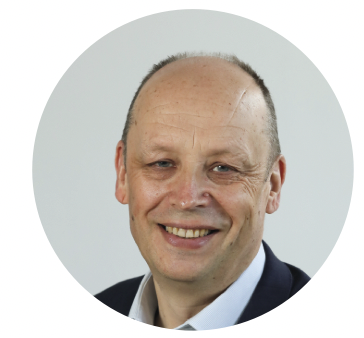 healthcare staff feeling anxious, frightened, and unwelcome, Permanent Secretary for the Department of Health, Peter May, outlines the hugely valuable contribution of internationally educated and recruited professionals.
healthcare staff feeling anxious, frightened, and unwelcome, Permanent Secretary for the Department of Health, Peter May, outlines the hugely valuable contribution of internationally educated and recruited professionals.
The landscape of society in Northern Ireland is evolving and our population is becoming increasingly diverse, reflecting the globalised world we live in. This diversity is perhaps most apparent within our health and social care (HSC) workforce.
It is important therefore that we foster a healthcare environment that is truly inclusive: we want all staff, regardless of their background or country of origin, to have the opportunity to thrive and excel in their careers, to deliver better outcomes for patients and to make a positive impact on the health and wellbeing of the community.
Our workforce is highly dedicated and resilient in the face of tremendous pressures. However, there are growing demands being placed on our health services, due to factors including population ageing and patients’ needs becoming more medically complex. The current level of vacancies across professional disciplines is also a major challenge: at the end of June 2024, there were more than 5,300 vacancies actively being recruited across the HSC, with the highest number of vacancies being in registered nursing and midwifery. There was a total of 378 medical and dental vacancies.
Therefore, the utilisation of international recruitment is a key avenue in addressing our resource issues, enabling the strengthening of our HSC workforce and delivery of a sustainable health and social care system.
Since 2016, 1,700 international nurses have been recruited and remain in post regionally across the five HSC trusts through the well-established and highly successful International Nurse Recruitment project. Of those recruited 1,649 are in adult nursing roles and 51 in mental health roles. A further 51 mental health nurses are scheduled to arrive in the coming months.
International supply now makes up 28 per cent of the doctors joining the HSC workforce in Northern Ireland – up from 7 per cent in 2014. Over the last three years, a total of 207 international doctors have been recruited to HSC trusts.
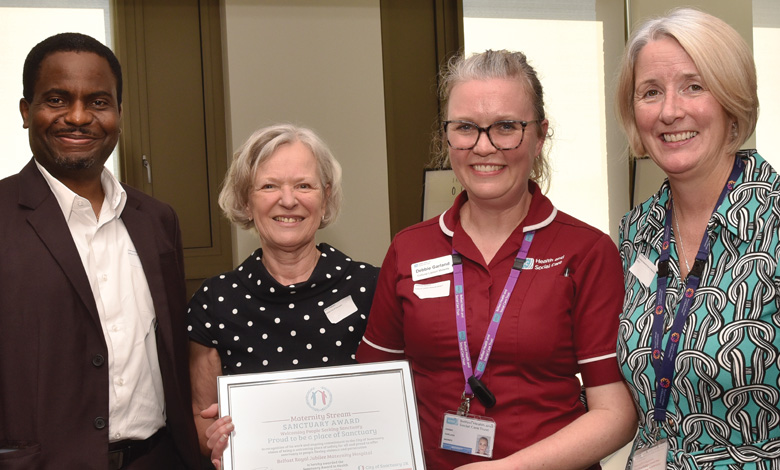
In the Southern Health and Social Care Trust, for example, a group of doctors recruited from India is working across a range of grades and specialties including general surgery, emergency medicine, urology, gynaecology, radiology, and orthopaedics. With significant vacancies and challenges recruiting and retaining doctors, the Trust’s human resources team launched an international recruitment drive and travelled to Mumbai, India, to interview candidates.

Work is now progressing to develop the potential for international recruitment for other healthcare professions including pharmacy, social work, and allied health professionals. That will, of course, be dependent on the availability of funding as well as the availability of recruits within specific professionalisms.
In recent years, there has been a marked increase in the number of trainees requiring a visa to commence medical training programmes in Northern Ireland, both general practitioners and specialists. Currently, there are 369 trainees requiring visa sponsorship (up from 270 in August 2023).
As part of NIMDTA’s VALUED Strategy, a ‘New to Northern Ireland (N2NI)’ project was established in 2021. A working group has helped to develop strategies to provide support to trainees and improve their training experience, including welcome events, enhanced induction programmes, and peer mentoring.
The health and social care system in Northern Ireland strives to provide excellent pastoral care for newly arrived international recruits, underpinned by adherence to ethical international recruitment principles outlined in the Department’s Code of Practice for International Recruitment, which aims to protect the rights of international recruits across health and social care, including those employed within the independent sector.
Our HSC trusts have received recognition for their efforts to ensure that diversity is valued and celebrated within the workforce. In September 2024, Belfast Trust became the first health trust in the UK to be awarded the prestigious ‘Trust of Sanctuary’ Award, marking its commitment to providing a safe, welcoming environment for everyone, regardless of background, ethnicity, or origin.
The South Eastern Trust’s recent Diversity Celebration Fun Day, attended by more than 1,000 people, was arranged for trust staff and their families to celebrate the richness of diversity within the Trust and to promote unity, inclusion, and cross-cultural understanding.
Such events are important to show the abiding commitment of the HSC to the principles of inclusion and unity as we respect the diversity of all our staff who by their dedication and skill are enhancing the quality of patient care every day.

